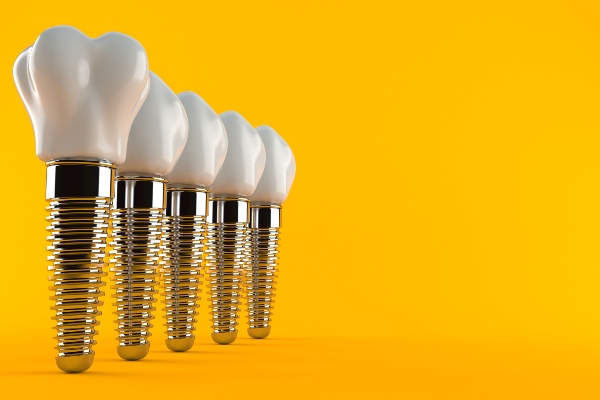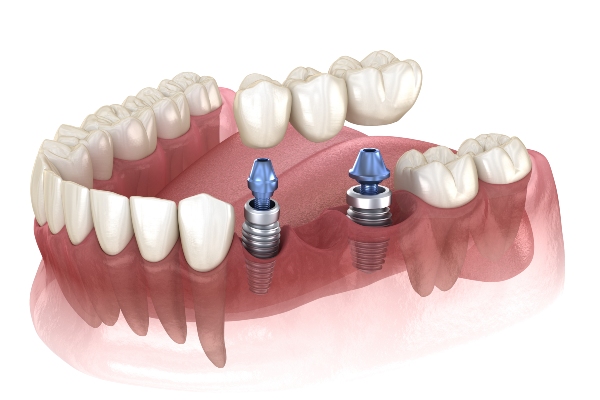Ways an Emergency Dentist Relieves Toothaches

Toothaches can range from a minor annoyance to a debilitating condition. If you have severe pain from a toothache, an emergency dentist may be able to provide treatment to ease your symptoms and heal the underlying condition.
While you normally have to wait several days for a regular dental appointment, emergency dentists make it a priority to see you as soon as they can. Since emergency rooms in hospitals are not able to do dental work, an emergency dentist is the right choice of care provider if you are suffering from a non-life-threatening dental condition that can not wait for care. Often, emergency dentists can see you even outside of their regular working hours to help you get relief from the problem.
What you should know about toothaches
Tooth pain is a relatively common condition. Some conditions may resolve on their own. Others need to be evaluated by a dentist.
Common causes of toothaches
Toothaches may have a variety of causes:
- Biting into hard objects
- Food stuck between the teeth
- Damaged fillings
- Chipped or broken teeth
- Poor oral hygiene
- Tooth sensitivity
- Tooth decay
- Sinus infections
- Clenching or grinding teeth
- Abscesses
- Gum infections
While some of these are minor problems that will not lead to immediate health concerns, many of them can eventually lead to complications if left untreated. You should discuss any changes in how your teeth are feeling with a dentist and keep up with routine checkups to catch possible causes of toothaches as early as possible.
Toothache symptoms
The primary symptom of a toothache is pain that may be sharp, constant, or throbbing. It may occur all the time or only when biting something. Tooth pain may be accompanied by swelling, foul-tasting drainage, bad odors, and fevers or headaches.
When to see an emergency dentist
If you are experiencing mild tooth pain that does not resolve on its own, you may want to make an appointment with your regular dentist to check for cavities. If you are experiencing constant or severe pain, you may have a more serious condition that warrants a trip to the emergency dentist. This is particularly true if you have pain that radiates throughout your mouth or into your neck and face or interferes with your daily activities.
Types of emergency dental treatments
Your emergency dentist will perform an exam and review your dental history to diagnose your problem. The dentist may take X-rays. Once your problem is identified, the dentist will recommend a treatment.
Fillings
If you have a small cavity, the dentist may recommend a filling. This procedure involves drilling into the tooth to remove the decayed portion, cleaning and disinfecting the tooth, and then filling the hole in the tooth with ceramic or composite resin. If left untreated, a cavity can lead to serious infection and tooth loss, but a filling prevents the decay from spreading and should ease the accompanying toothache symptoms.
Root canal
If you have a large cavity or your tooth is infected, the dentist may perform a root canal. During this procedure, the dentist drills through the enamel and dentin layers to reach the pulp. The dentist then removes the pulp and seals the tooth. The dentist may place a crown on the tooth to protect it from additional damage.
Extraction
Sometimes teeth have decay that is too extensive to repair with fillings or root canals. In these cases, the dentist may extract the tooth. Restorations, such as dentures or dental implants, are a possibility you can discuss with your dentist to help restore the look and function of your mouth following a tooth extraction.
Antibiotics
If you have a fever or swelling the dentist may prescribe an antibiotic. If your infection was caused by food lodged under the gums, the dentist may also perform a deep cleaning. It is important to always finish the full course of antibiotics prescribed to you. Even though you might feel better after the first day, infections can return if you do not follow through on taking the medication.
Conclusion
Toothaches are a relatively common condition that can have a variety of causes. Toothaches that cause only mild symptoms can usually wait to be evaluated by your regular dentist. However, if you have severe pain, fever, discharge, or other signs of infection, you may want to visit an emergency dentist for treatment as soon as possible. Without treatment, dental issues will continue to worsen, and the sooner you get the help you need the more likely you can avoid serious procedures, such as tooth extraction.
Request an appointment here: https://www.summitfamilycosmetic.com or call Summit Family & Cosmetic Dentistry at (908) 516-3833 for an appointment in our Summit office.
Check out what others are saying about our dental services on Yelp: Emergency Dentist in Summit, NJ.
Related Posts
Restorative treatments encompass a broad range of dental procedures designed to help patients recover oral health and self-esteem via improved aesthetics. Patients who have suffered oral damage due to tooth decay, gum disease, or trauma might benefit from restorative therapy. Visiting the emergency dentistry office as soon as possible is advisable to restore oral health…
Emergency dentistry can provide dental care during unexpected dental crises. Unfortunately, not all dentists can provide care at any time. That is why some people try to restore their own dental health at home. But the healthiest way to resolve a dental problem is to seek professional care.If patients want to know why they should…
Emergency dentistry is an excellent option if you have a chipped, cracked, or broken tooth. An emergency dentist can help to fix your tooth and prevent further damage. If you have a tooth that is damaged, it is essential to visit an emergency dentist as soon as possible. The sooner you visit an emergency dentist,…
Emergency dentistry can tell you a lot about tooth pain. They can tell you what the cause is, how to treat it, and what to do to prevent it in the future. Tooth pain is typically a sign there is something wrong with a tooth. The pain typically lingers until the root cause of it…


